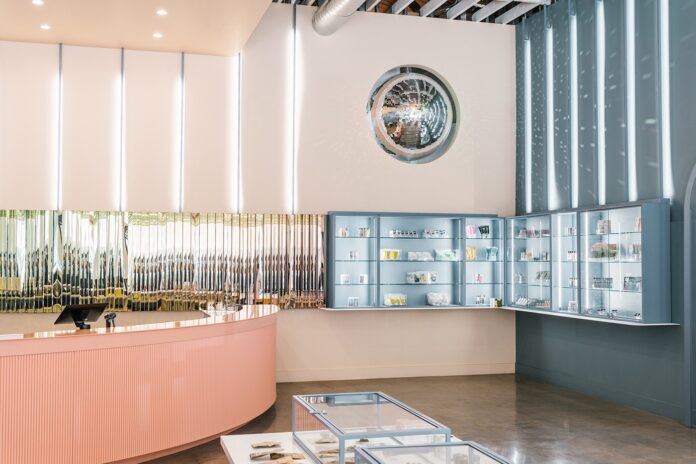Impulse buys can be a win-win for retailers and consumers alike, increasing basket sizes while adding value for customers through special deals and new products to try. They also may generate substantial revenue, with market research reporting more than 75 percent of American consumers make impulse purchases.
Like all other things retail, the key to success is to know the customer and nail the strategies for presenting irresistible deals at the right time and in the right place. We checked in with some of the industry’s leading merchandising experts for their insight about how to achieve the best results.
Design an impulse-worthy bundle
Bundle deals work especially well as impulse buys, offering opportunities for cross-merchandising, upselling, and boosting product discovery.
When putting together a bundle deal, treat the process like creating a thoughtfully planned package for a friend, incorporating products that complement one another and reflect the store’s consumer demographics. A well-designed bundle can go a long way when it comes to building trust with consumers. For instance, a bundle that contains flower, rolling papers, and a lighter communicates the retailer is looking out for the customer by providing everything they need in one easy purchase.
Going beyond the basics, themed bundles can inject fun and exploration into the retail experience while building customer connection over shared experiences.
“What does a summer bundle look like in a coastal town?” asked Michael Marra, co-founder and creative principal at Budder Creative. Marra possesses more than two decades of experience in interior design, product design, and environmental branding. “Retailers might offer a beach bundle that includes merch like a branded canvas bag and frisbee along with edibles and skin-soothing topicals that seem as if they were picked out just for you, the customer.”
The checkout area is king
Much like in traditional retail, the point of purchase dominates when it comes to the best spot for impulse buys. That said, there is an art to curating the product mix in this area.
“What I’ve seen work well is to place a bundle deal near the register,” said Will Smith, founder and chief executive officer of Bud Bar Displays, a manufacturer of display systems and containers. “For example, you may have a bundle with a pre-roll and lighter that are attractively displayed in a locked acrylic display at the point of sale,” giving a nod to the power of cross-merchandising.
Cindy Lam, owner and principal designer at Remedy Design Group, notes display boxes offer both flexibility and creativity. “A secure acrylic display box on the countertop allows retailers to show off impulse buys or bundles outside the wrapper or packaging,” said Lam, whose retail-design firm has made its mark with functional, elegant interiors that reflect her tenure on Starbucks’ design team. “Customers can see what they are actually buying, whether that’s the color and shape of edibles or the oil in a cartridge. Locating this display near the point of sale makes it easy for customers to add these items to their order because the product is right there, temptingly displayed.”
Shelley Gummig, vice president of business development at KC Store Fixtures, suggests utilizing areas where customers queue as prime locations for displaying product bundles or other impulse buys, a strategy she has seen succeed in traditional retail sectors. “Display small, inexpensive impulse buys right in front of where people are standing, whether that’s in the waiting area or at the register,” she said.
Limit the options
Retailers may be tempted to offer fifteen different gummy flavors at the point of purchase to appeal to a wide range of tastes, but this strategy often backfires. Customers easily can become overwhelmed when presented with too many options, leading to frustration, confusion, and purchasing regrets. Even worse, they may buy nothing at all.
On the other hand, limiting the products displayed provides direction and clarity to customers, making an impulse buy an easy decision.
“Curate your impulse product offerings to provide direction. Don’t have too many choices,” said Desmond Chan, creative director at SevenPoint Interiors, the cannabis-specific division of an international retail-design firm that counts Nordstrom, Coach, and J.Crew among its clients. “For example, you may carry a wide selection of lighters, but when it comes to curating the experience at your point of sale, display only a select few lighters so it’s a quick decision for the customer.”
Marra advised, “For smaller items, limit how many you put on display at the register. Too many of the same product can create a sense of lower value and also make the area appear more cluttered.”
Use repetition to seal the deal
Whether offering a bundle deal or highlighting a new product launch, repetition can encourage impulse buys. This strategy is not a surprise in light of marketing research showing people need to see or hear about a brand multiple times before deciding to make a purchase.
“Let’s say there’s a new product that’s launching with a special deal, which is pretty common,” said Marra. “In addition to featuring that product on your shelves or launch table, also consider featuring it at the register.”
Denise De Nardi, chief sales officer at Colorado dispensary chain Native Roots Cannabis Co., noted budtenders play a pivotal role in encouraging impulse buys, which means keeping budtenders updated on the store’s latest marketing priorities is imperative. “To some extent, the impulse buy is visual, but a lot of it comes down to the budtender guiding the conversation and suggesting complementary items that marry well with the products in the customer’s basket,” she said. “I call it enlightened hospitality, where the budtender and customer are having a conversation and looking at products, but the budtender is also making additional product recommendations in a way that ties it all together.”
Randy Simmen, head of design for SevenPoint Interiors, agrees about the importance of the human factor. “Customer service is key for impulse buys, like having that friendly educator at the register who asks if you need a lighter or rolling papers to go with your flower,” he said.
While repetition can be effective, it also may be annoying if overused. Budtenders and other frontline employees should understand their top priority is to provide exceptional customer service, tailoring recommendations to the individual in front of them rather than pushing products that may be inappropriate for the customer’s needs or experience level.
Although impulse buys are only one of many approaches to boosting the bottom line, they can be a significant source of revenue when used effectively.












[…] psychology of holiday shoppers is clear: They love a great deal, especially during the holidays when they have to buy gifts without breaking the bank. Retailers […]